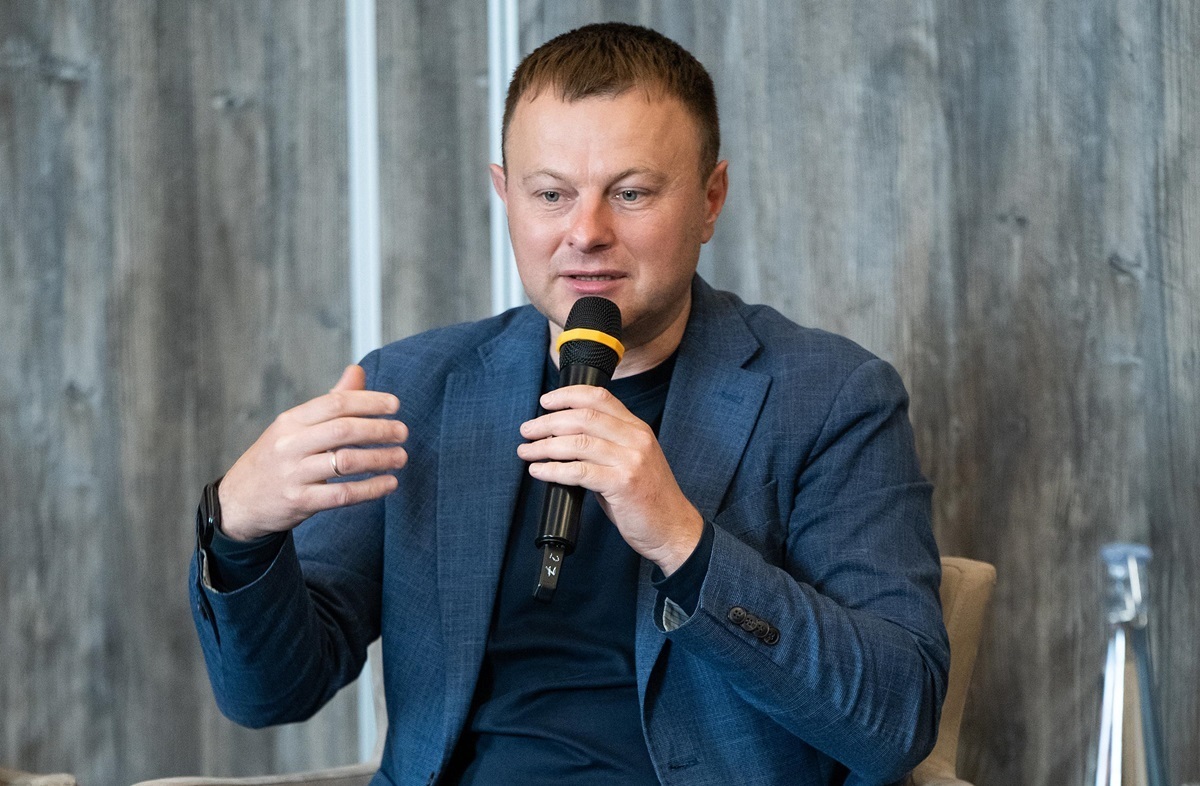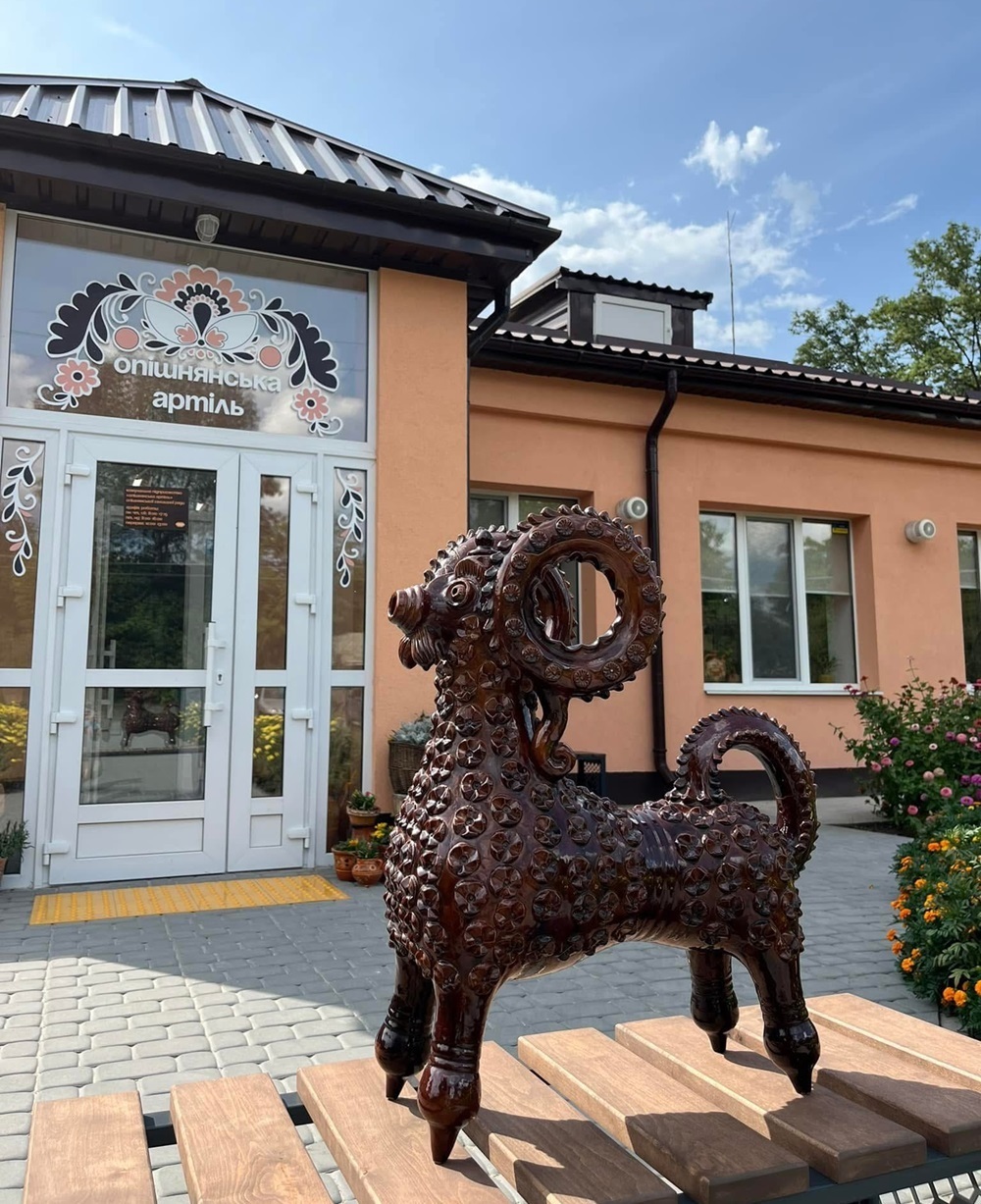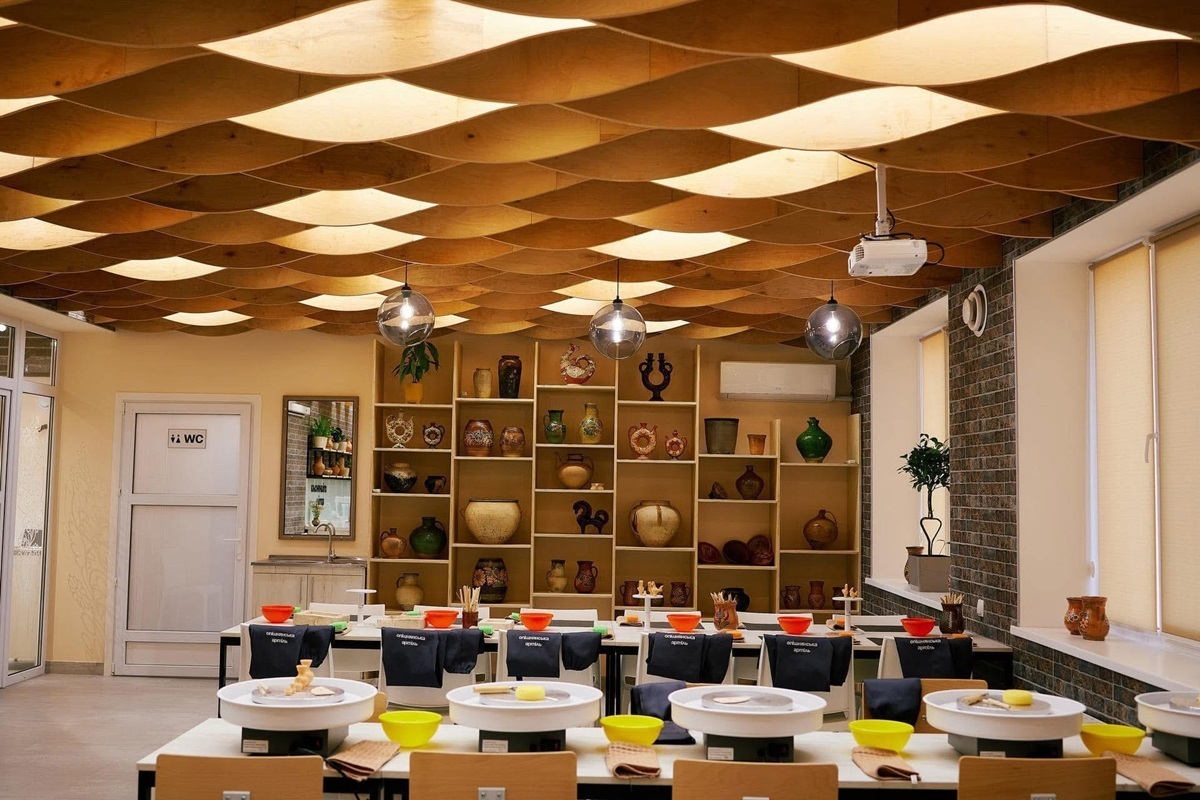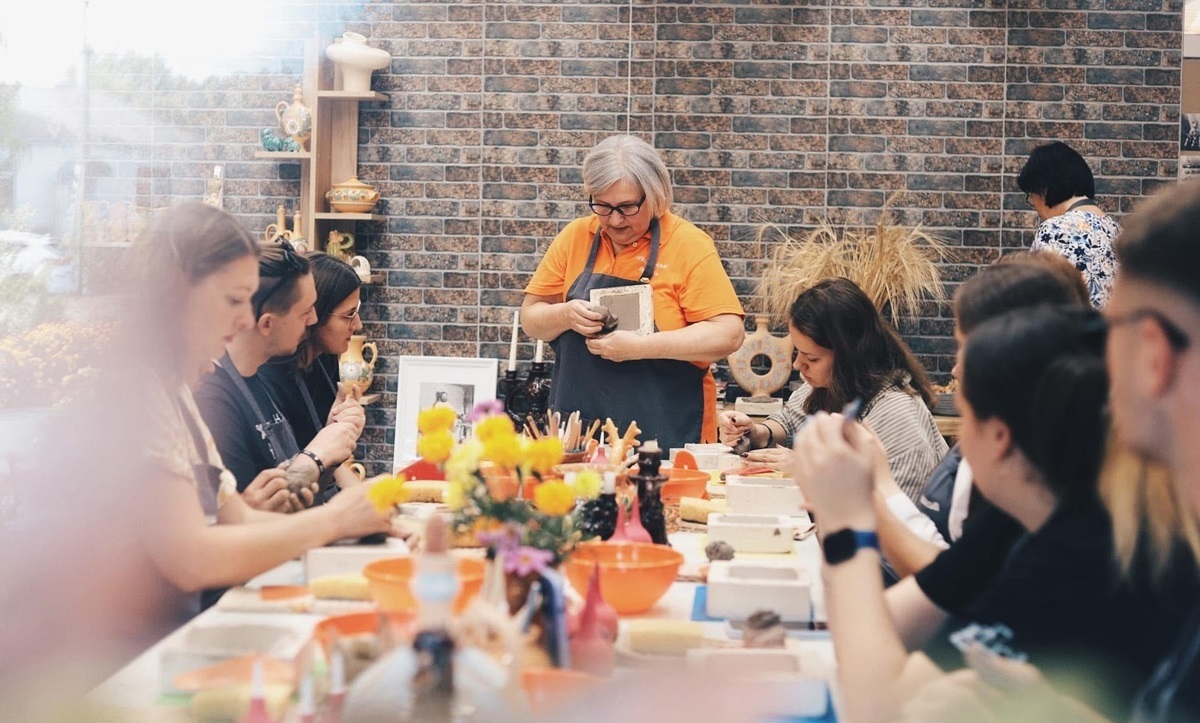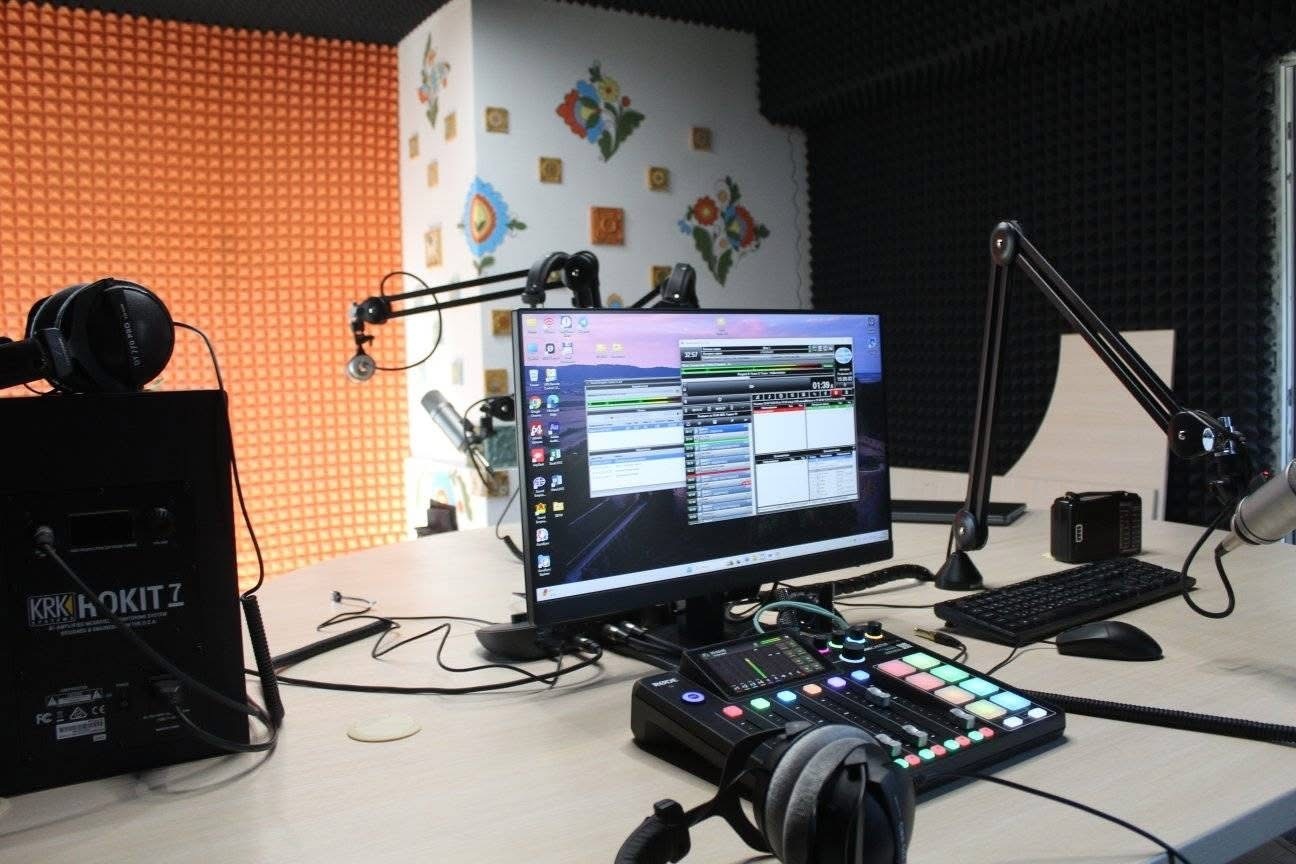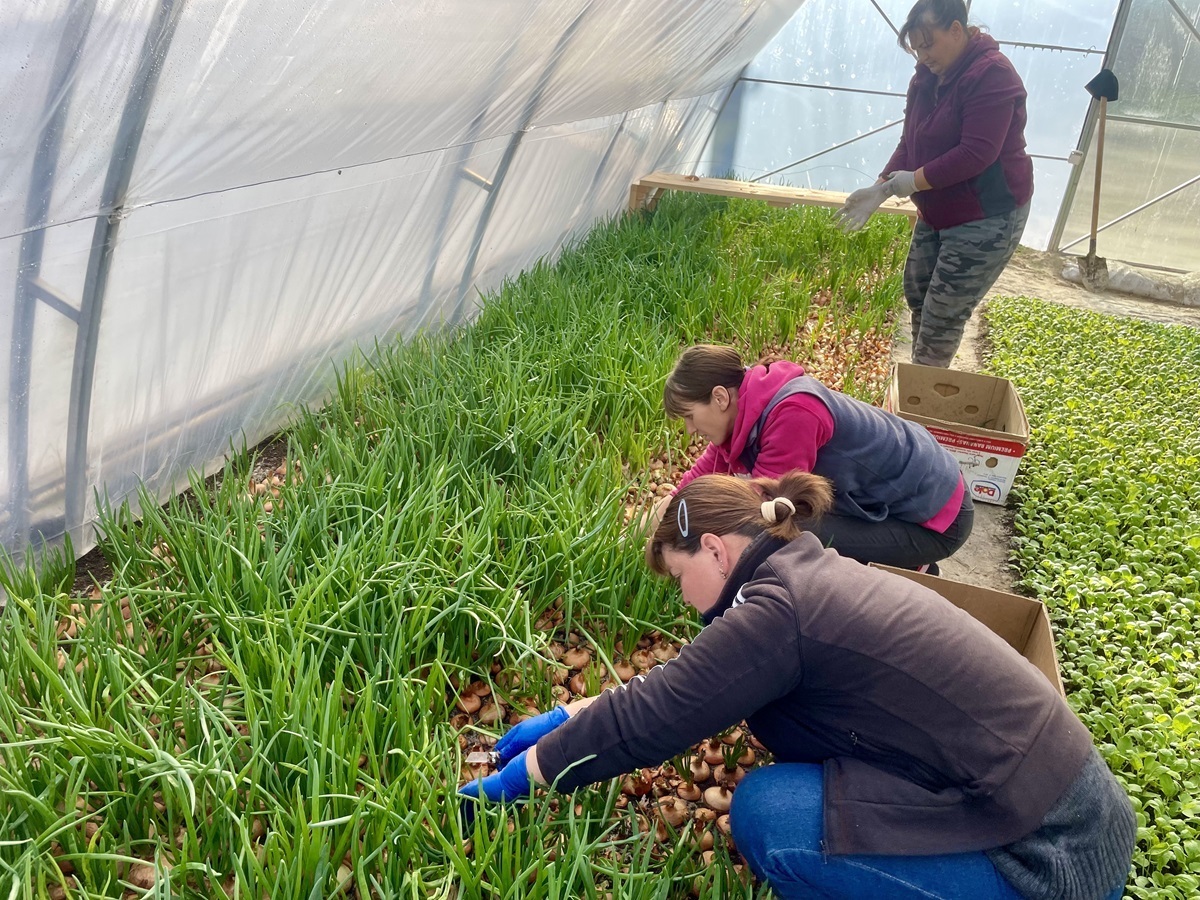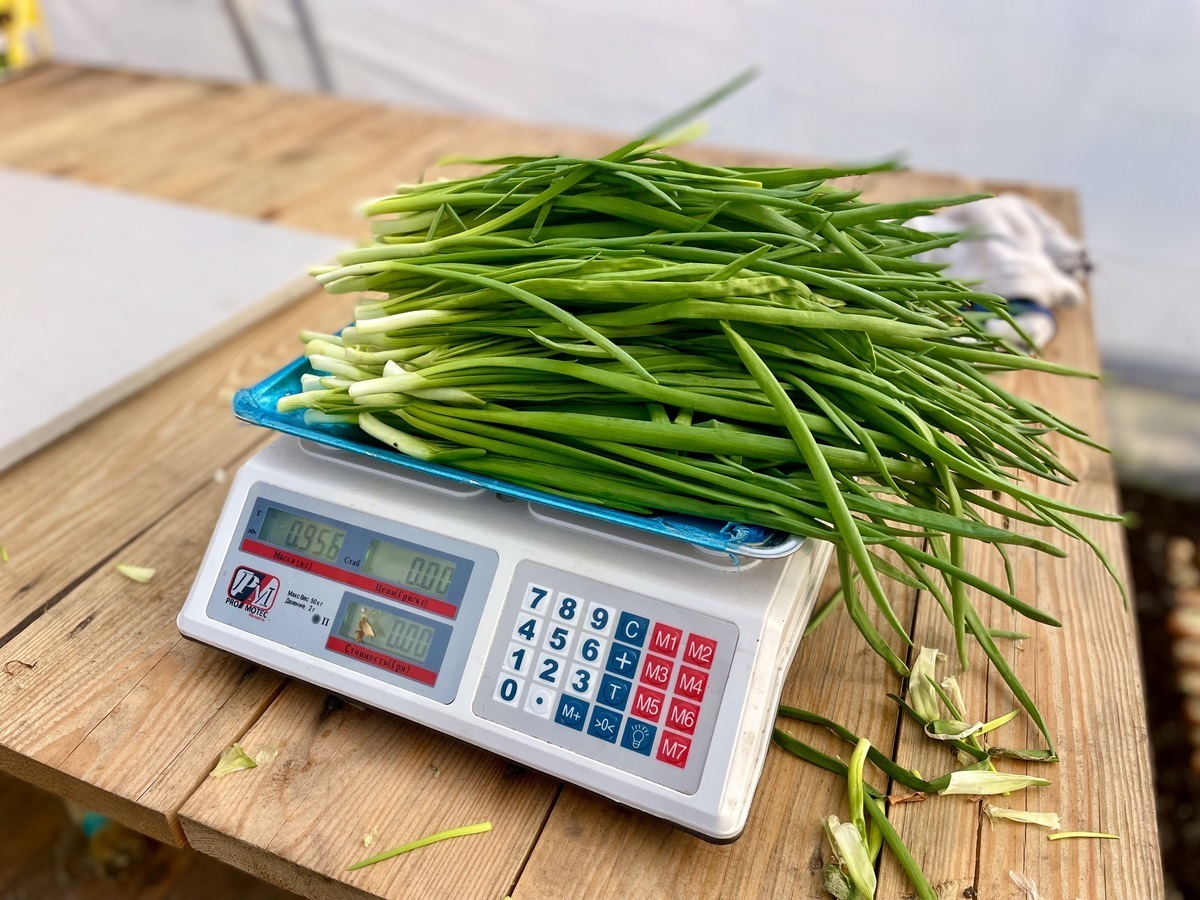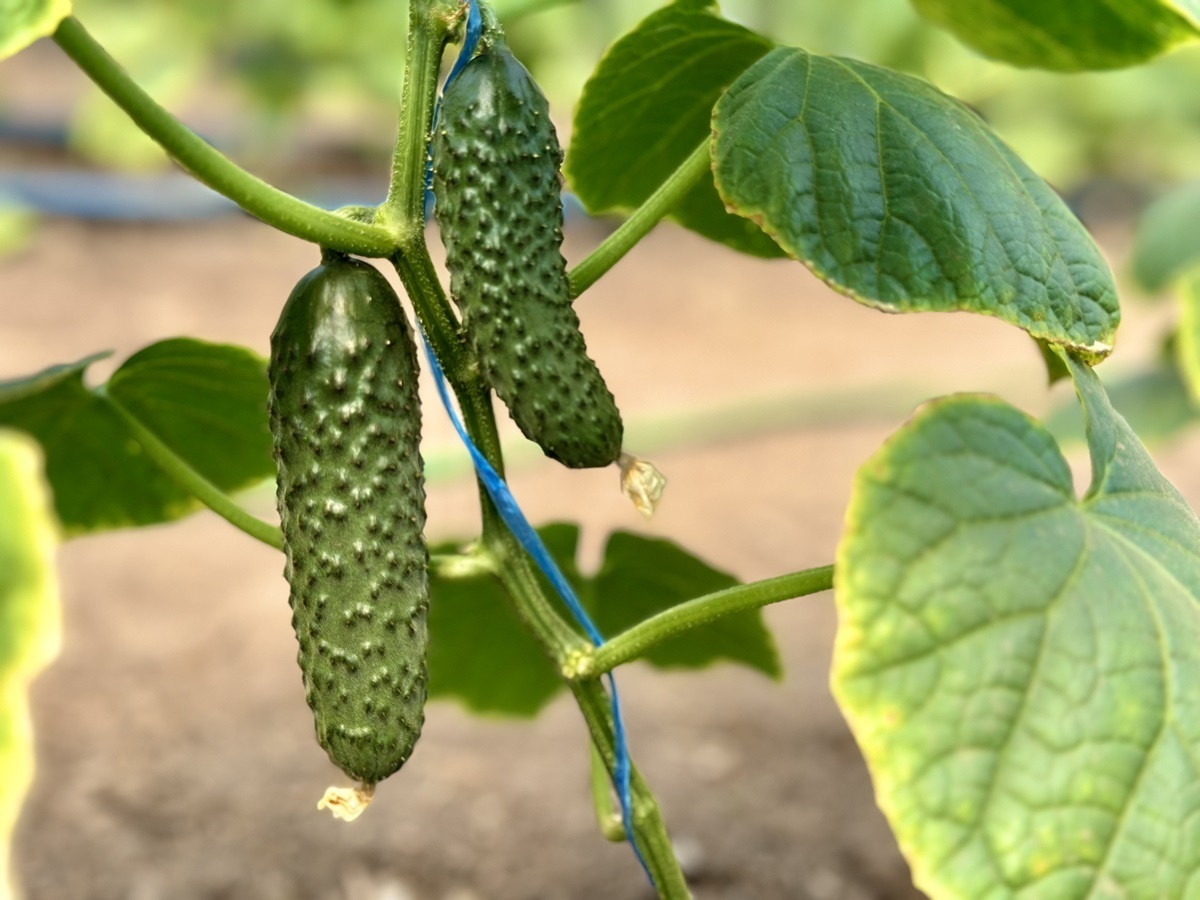The Opishnia community: How war and challenges give rise to a new format for development
By Dmytro Syniak
Today, Ukrainian communities are not just administrative units, but real centres of life, which, in the conditions of war, are learning to survive, develop and help others. The Opishnia community in the Poltava region is one of the brightest examples of how local authorities, led by Mykola Riznyk, are turning challenges into opportunities. The revival of pottery, the establishment of a local radio station and the development of tourism and agribusiness are just a few of the initiatives that are already producing results. In this interview, Mykola Riznyk discusses how the community manages to preserve its identity, attract investment and support the army, even when state resources are limited. It is a story of how a small community is becoming an example of a great victory — not only on the battlefield, but in the everyday struggle for the future too.
Mykola Riznyk, Head of the Opishnia Community in Poltava Region
Educational problems of the ‘gas-producing’ community
What are the main challenges you face as the community leader? What do you tackle and work on every day?
- The biggest challenge is the war, of course. If it were not for the war, our lives would be completely different. Apart from that, I would say that my biggest daily concern is filling our budget. This is particularly important so that we can send more money to the army.
How can the community increase its own budget?
- There are various tools for this purpose. For example, partnerships with businesses, particularly monitoring the employment status of workers. We are constantly negotiating with large businesses to encourage them to register various structural units with us so that they pay taxes locally. In return, we guarantee the transparent use of the funds received, with half of these revenues being paid to the Armed Forces of Ukraine. Thus, during the three years of full-scale war, we have provided the Armed Forces of Ukraine with more than UAH 100 million in direct aid. This is despite the fact that our community is relatively small, with only 8,300 inhabitants.
What is your community’s budget for this year? Can it be compared to the budget for 2022 before the full-scale invasion?
- Our budget remains at around UAH 100 million, of which approximately UAH 11 million are state transfers. We do not receive any medical subsidies because we only have primary care. This means that we only receive educational subsidies from the state. I will not hide the fact that our wealth comes from gas wells: our main sources of income are personal income tax from gas workers’ salaries and rent from gas production. I would also like to mention that our budget increased from 100 million hryvnia to UAH 450 million in 2023, primarily due to tax revenues from the Aurora supermarket chain. In other words, we reached an agreement with the owners of the chain and they registered it with us. Consequently, we received a single tax from Aurora for five months, which resulted in a significant increase to our budget. However, the tax legislation then changed and these funds went to the location of the company’s head office. In other words, to Poltava, where Aurora became the largest taxpayer. Incidentally, we fulfilled our obligation to the chain and spent half of the money we received on supporting the Armed Forces of Ukraine. As I mentioned, we provided UAH 100 million in direct aid and used the rest for various other forms of cooperation with the military.
You mentioned educational subsidies. Could you explain how community schools function?
- I would rather ask your portal to help me contact the government. If the government implements the announced education reform, there will be no lyceums at all! Together with the heads of four neighbouring communities, we calculated that even if we created a lyceum together, we still would not meet the state’s requirements. This means that, in order to study at a lyceum, our children would have to travel 45km on unpaved roads to Poltava. Poor roads are generally a major problem in the Poltava region, with no decent roads leading to either Poltava or Sumy. The state must solve this problem before demanding anything from us.
‘We want to be partners with our foreign communities, not beggars...’
How are local businesses faring during the war?
- The business is facing significant challenges, primarily due to a shortage of workers. This was an issue even before the full-scale invasion, but now it is even worse: some workers have been mobilised for the army, while others have fled to safer regions. The situation is challenging for agricultural businesses, retailers and private entrepreneurs, who are unable to exempt individuals from conscription. The number of buyers has also decreased, as have the profits of entrepreneurs and our tax revenues. The slight relief is the increase in land prices, to which rent is tied. We are trying not to raise the rent ourselves in order to make things easier for businesses. However, the market is the market: certain coefficients are applied and rental costs increase automatically. In such circumstances, we deem it inequitable to impose the maximum 12% of the land value permitted by law on the rent. We only take 7%, again to make things easier for businesses.
Is the community seeking extra-budgetary funds?
- Yes, we are trying to find some. To this end, we have created a project and investment department, whose employees write projects and look for various grants. Perhaps they cannot find as much as we would like, only 2–3 million per year – but they do find something. Even before USAID closed, our community received solar panels worth over UAH 300,000 from this organisation. This was entirely thanks to our project and investment department. We also used grant funds to create a hub for internally displaced persons. Generally speaking, the project and investment department wins many small grants, although it applies everywhere. Our projects are constantly being considered on the DREAM system, but unfortunately, they do not win very often. Perhaps we are considered relatively wealthy and in less need of help than others during the war. I don’t know, though …
Does your community have any partners abroad? If so, do they support you?
- We have two sister cities: one in Poland and one in Croatia. We cooperate with them, but we try not to act like beggars; rather, we act as partners with whom we can share experience and develop joint projects. We are currently working on a project like this with a Lithuanian community, but I would prefer not to discuss it at this stage. If everything goes well, then... The Verkhovna Rada recently voted in favour of a decision allowing communities in central Ukraine, as well as frontline and border communities, to receive donor assistance from international projects. I am primarily referring to the relatively new Interreg NEXT 2021–2027 programme. We hope that cooperation with this programme will open up great opportunities for us in terms of attracting extra-budgetary funds.
Does Opishnia support communities that have been affected by russian shelling?
- Yes, we have been friends with the Velyka Pysarivka community in the Okhtyrka district of the Sumy region for a long time. Soon, young people from there will come to us for training and recreation. We previously transferred UAH 1 million to the Bilozerka community in the Kherson region. Ukraine is united, and we must prove it in practice.
How the community invests in preserving pottery traditions
I was surprised to read on Wikipedia that you were the main inspiration behind the creation of the Opishnia Artel communal mini-factory, which opened amid the war in 2023. Could you tell us about this project? Was there really a need to establish a communal enterprise at such a challenging time?
- Opishnia is listed as one of the centres of pottery in all schoolbooks that mention pottery in Ukraine. This was the case for decades. During the Soviet era, there were four ceramic factories in our settlement and almost every household produced goods for sale. However, these enterprises eventually closed down, unable to withstand competition or adapt to rapidly changing market conditions. Consequently, only museums, in particular our National Museum-Reserve of Ukrainian Pottery, remained custodians of the famous Opishnia ceramics. As soon as I became head of the community, I knew that we had to revive this craft urgently, before people forgot how to work with clay.
What steps did you take to achieve this?
- My team brought together several remaining craftsmen and asked them what they needed to resume production. Some said they needed a pottery kiln to fire their products, while others said they needed clay. Some lacked the space for a workshop. We compiled a list of all these issues, wrote a grant application, and submitted it to the International Organisation for Migration. Our application was successful, and in 2020 we received UAH 0.5 million to purchase equipment. We found a place and started renovating. However, the outbreak of the pandemic forced us to stop. When we resumed work, a full-scale lockdown began. By that time, however, we had already completed 80% of the work, so we decided to finish the project anyway. We finished in 2023.
How much of its own funds did the community invest in the project?
- Well, the renovation cost several million hryvnias. We also provided Opishnia Artel with communal premises. Additionally, we pay around UAH 3 million each year for materials, salaries, and utilities. However, I want to emphasise that this project was not undertaken for financial gain, but purely to preserve the pottery tradition that has long been a hallmark of Opishnia. Pottery is the identity of our community, its unique feature. After all, it is part of Ukrainian culture, and that is what the war is being fought for. So, luckily, in the second year of the war, we were finally able to realise our dream and start producing pottery.
What are the results of this production now, two years after it started? Was this project worth the investment?
- The result has far exceeded all our expectations. Although Artil has only been operating for a year, it has already earned around UAH 1.5 million. We never even hoped for that! I can now say that our project could well become self-sufficient within the next year or two, at which point it could be given free rein. We are, of course, trying to bring this moment closer. For example, we plan to install solar panels on the Artel production premises soon, which will reduce the cost of operating electric furnaces. Overall, I believe that the future of many communities lies in such small enterprises.
Why do you think that?
- It is a driver of community development. For example, thousands of tourists visit the Opishnia Artel every year, and there is huge demand for our ceramics in Ukraine and abroad. Our company is struggling to keep up with orders from various restaurants and cafés. In addition, we are involved in volunteer work, holding free or low-cost workshops for veterans, family members of fallen soldiers, military personnel, and children. This project has also taken us to a new level. We are no longer just fixing all kinds of small problems and patching up asphalt; we are talking about the cultural development of an entire country, returning to our roots and preserving traditions…
Entrance to the Opishnia Artel
Premises for hosting craft workshops
Workshop at the Opishnia Artel
Why does a community need its own radio station?
Is it true that your community has a local radio station?
- Indeed, two months ago, we launched Opishnia FM, a radio station that took four years to develop. We previously had a public utility that maintained the old wired radio network. Unfortunately, a few years ago, Ukrtelecom dismantled this network. Since then, people have really missed having a local radio station, especially the elderly who do not usually use the internet. They are used to finding out what is happening in the community and in the world by listening to the radio rather than reading about it online. The National Council on Broadcasting finally issued us with a licence, after which we found premises, bought equipment and got started. We are now recruiting journalists and presenters, and creating a programme schedule. The only thing left to do is finish the repairs…
Does the community really need public media, let alone a radio station? After all, even buying a radio receiver is not so easy nowadays…
- We calculated that, for example, the cost to our community of an air alarm system would be around UAH 20 million. However, this system can do nothing more than sound an alarm. A radio, which costs ten times less, can achieve much more. It can combat misinformation, inform people, reassure them and inspire them, among other things. We are not the only ones who have recognised these advantages, and as far as I know, similar radio stations are now being set up in many communities. We distribute radio receivers free of charge to privileged groups. This case is not only about the warning system, but also about accessibility to information. After all, people who cannot afford a smartphone or have poor eyesight also have the right to information.
Please could you tell us how much this case cost?
- Radio broadcasting equipment costs just over UAH 1 million. Renovating the premises cost us UAH 4 million, but this is a one-time investment. However, personnel costs must be covered regularly. This amounts to just under UAH 3 million per year. This may seem like a lot, but we consider these expenses to be an investment in information warfare and security. Moreover, our radio station fosters a unique sense of local patriotism among our listeners. We are not a city, just a small community. This feeling is therefore very important to us. When people hear, ‘You are listening to Radio Opishnia,’ and they feel proud of their community. This is what makes all the effort worthwhile! People are becoming more socially active. They now come to us with suggestions for music formats and ideas for programmes... By the way, our project has been supported by the Naftogaz group, which has provided us with solar panels and batteries to ensure that the radio can operate without interruption. Naftogaz has also allocated around UAH 50,000 for radio receivers. We buy the receivers from Epicentre so that they come with a warranty. We prefer not to buy them at radio markets.
But what about freedom of expression? Clearly, local radio stations dependent on the current administration will promote it and its position during every electoral campaign.
- Should the elections take place, we have decided that all election advertising will remain commercial, without exception, and that candidates from the current administration will not receive any privileges. The same applies to advertising. No businesses owned by relatives of local council employees will be given preferential treatment.
In the Radio Opishnia studio
How the settlement council launched its own agricultural enterprise
Is the local cucumber farm advertised on the local radio station?
- I understand what you are implying. Believe me, I am well aware that the community should not be setting up more communal enterprises; it should only be providing services and creating the best opportunities for business development. If an entrepreneur had opened a ceramics factory here, I would have prayed for their success. But no such person appeared, and traditions were disappearing. So, we took matters into our own hands. There was no way to share information with people, and none of the entrepreneurs wanted to do it. So, we created our own radio station.
However, a communal agricultural enterprise is a completely different matter…
- We did not create it just because we wanted to. The fact is that there was land in our community that was being cultivated illegally. People simply did not want to pay the market price. So, we gradually took the plots away from them. But what were we supposed to do with these plots? Give them back to the same people at a higher price? They did not want to pay it. Eventually, we started cultivating the land ourselves, focusing on crops that require a lot of manual labour, to provide our people with an income. Through this project, we also wanted to demonstrate to our residents that it is possible to earn a good living from the land. We also identified a free-market niche…
How much profit does a communal agricultural enterprise generate? What investments were required? Where did the money go?
- We have built one greenhouse and are now constructing two more. Since we grow organic cucumbers there, demand for them is always high. We also grow spring onions, lettuce and other salad vegetables in greenhouses. In the fields, we grow potatoes, courgettes, aubergines, cabbage and other vegetables. We sell all of these to large retail chains, including those in Kyiv.
What next? Will you set up a community agricultural holding company? You already have the media for it…
- Well, here you go again! As I said, land prices are rising, and we are very pleased with how the land auctions are going. We may also put some of our company’s land up for auction and lease it out. We will instead focus on growing vegetables, as unfortunately almost no one in our community is involved in this, and I believe it could be a growth opportunity for every small village or settlement community.
The settlement council could set up a programme to support vegetable growing. They could provide small grants or loans, organise training for interested individuals and offer accounting services to start-up entrepreneurs. Why not do that instead of creating your own commercial project?
- We did exactly what you said. However, due to the war, the treasury is now paying out mini-grants in the third round. This means that a person may win a grant but not receive it for three to four months. This approach will not work because agriculture has its own cycles.
Tell us about the communal agricultural enterprise using figures. For example, how many tonnes of produce does it grow? What kind of products?
- Our enterprise owns just under 200 hectares of land. One greenhouse alone can generate around UAH 200,000 per season. The net profit of our entire enterprise is around UAH 1 million per year. This money flows into the community budget, which provides the agricultural enterprise with revolving financial assistance. This involves lending funds for employee salaries and seed materials during the off-season and sowing period. While a typical agricultural enterprise can take out a bank loan for such purposes, banks do not grant such loans to communal enterprises.
Nevertheless, what future do you envisage for this community business?
- I know that a draft law prohibiting the activities of such enterprises has been submitted to the Verkhovna Rada. If it is adopted, we will have to set up a limited liability company and transfer ownership of part of it to the community. Then, funds for the enterprise’s development could be provided by private investors and banks. I agree that such projects are not the responsibility of the local government, but we are in unprecedented times. When I tell my European colleagues what I have to deal with, they are astonished. This is because community leaders in the European Union have much less responsibility and much more money than we do. On top of that, there is the war in our country…
Have labour shortages been partially solved by internally displaced persons?
- Unfortunately, there is no queue of people wanting to work in our fields and greenhouses. This issue is particularly acute during harvest time, when around 40 vacancies remain unfilled. IDPs are not in a hurry to fill these vacancies. This is often because they do not want to lose the financial assistance they receive from the state or have unnecessary problems with the military registration office. We have to turn to the Labour Exchange, but the people they send us are not always reliable. This is unfortunate, as it is possible to earn at least as much here as in Poland. For example, during harvest season, pay can be up to 25 euros per day.
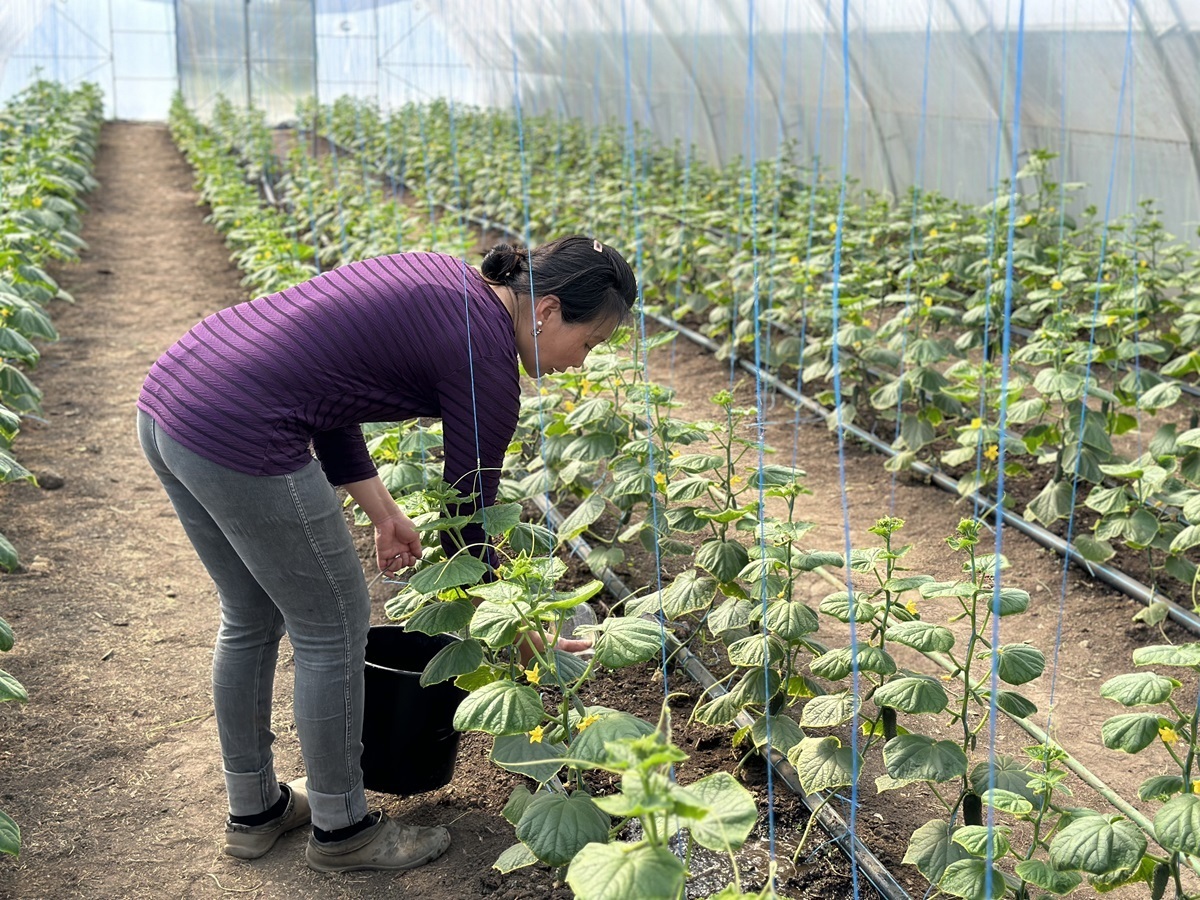
In a community greenhouse in Opishnia
Produce of the Opishnia Agro communal agricultural enterprise
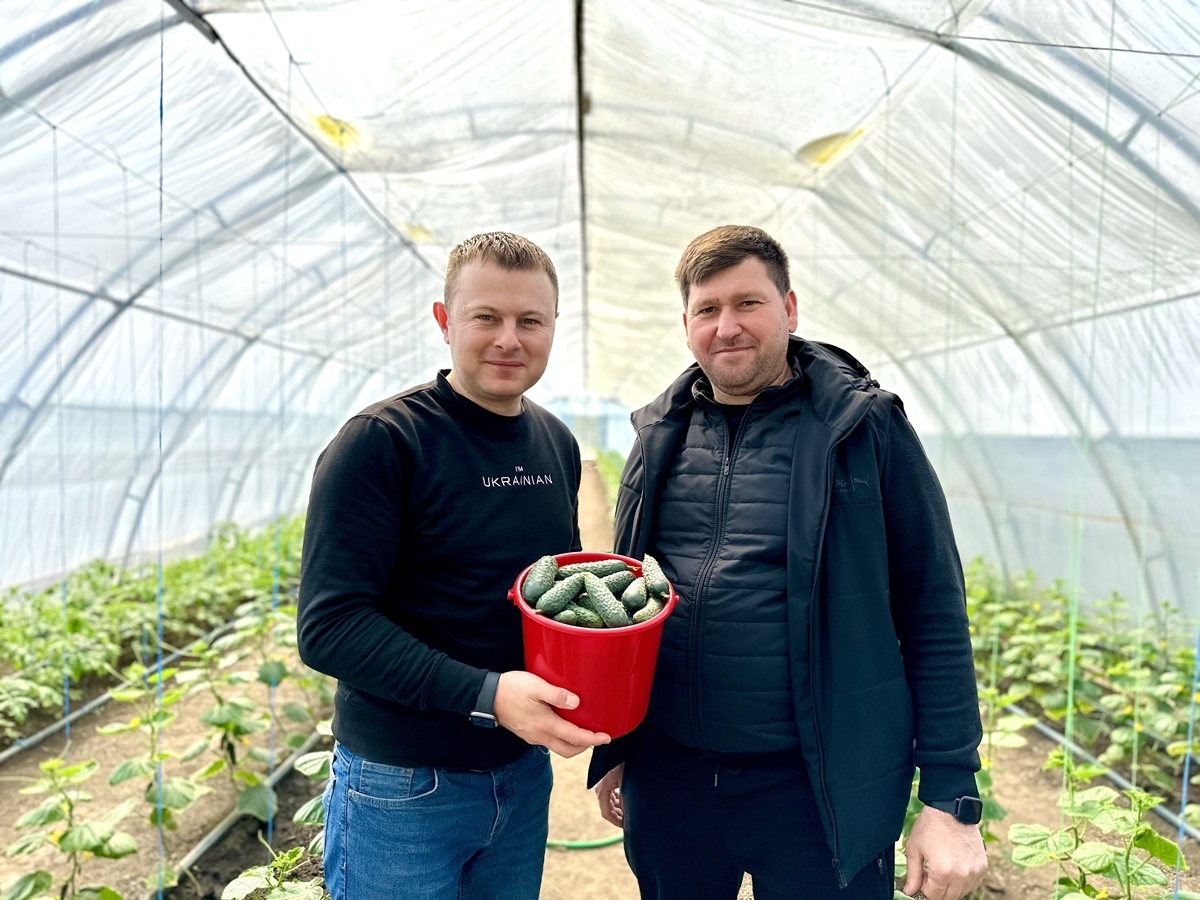
Mykola Riznyk, Head of the Opishnia Community in Poltava Region (left), and Nariman Ibrahimov, Director of the Opishnia Agro communal agricultural enterprise
Tourism boom in Opishnia
Have the displaced persons compensated for the outflow of population from your community?
- We experienced almost no population outflow. In fact, thanks to the displaced persons, our community is growing. As far as I know, the government plans to finance communities according to their actual number of residents, starting next year, so we conducted a headcount. It turned out that we have over 7,900 people, not including IDPs. When we amalgamated in 2018, there were 8,300 people. The number of internally displaced persons was initially 2,000, but now stands at around 1,200. You could therefore say that they have helped us improve the demographic situation. We are, of course, participating in all government programmes aimed at supporting displaced persons. These programmes mainly aim to provide compact accommodation. For instance, using government funding, we converted a long-closed kindergarten in one of our villages into a hostel for IDPs. The hostel now even has an inverter and solar panels, so it has its own electricity.
Where have you accommodated over a thousand newcomers if you experienced no population outflow?
- They mostly live in private homes, so there are hardly any vacant houses left — practically all of them are occupied. Incidentally, until recently, internally displaced persons (IDPs) received state funding to pay for utilities, which greatly alleviated the situation regarding payment for these services across the entire community.
Although it is not appropriate to talk about tourism development during the war, Opishnia is still a well-known settlement and the famous Dykanka is only 20 km away. Does the Opishnia community have any tourism development programmes?
- You might be surprised to learn that our community is currently enjoying a tourism boom. When I was elected head of the settlement council in 2018, our tourism revenue was essentially non-existent. Now, we earn over UAH 300,000 per year! Several hotels have opened during this time, and several recreation complexes are currently under construction. Tourists visit our museum, pottery workshop and green tourism estates. According to official data, over 35,000 tourists visited the Opishnia community last year. Despite the russian shelling of gas infrastructure, we consider tourism to be one of the most promising industries. For example, we have not received rent for the use of gas fields for the last three months, accounting for around 10% of our budget. We need to find a way to compensate for this... We are also counting on plans by an investor to build a Kyiv-Mohyla Academy campus, which will host various events, such as seminars and forums. We already have fairly clear agreements on this.
Does the Opishnia settlement council encourage its residents to form street associations?
- I would say that we are actually promoting the formation of self-organised community groups. As soon as we discovered that rural residents could establish organisations similar to urban housing associations, we launched a competition. The first group to establish such an organisation would receive UAH 200,000 to repair a road of their choice. Twelve such organisations registered immediately. These groups could be made up of people living on the same street or across an entire neighbourhood. This enables people to become more involved in community life and gives these organisations a say in how the budget is spent. We now have 17 of these organisations, and 12 of them have received the promised UAH 200,000. People are now solving their own problems: they are getting together for community clean-up days and writing appeals to the settlement council for funding for various projects. These projects are small — for example, they may only involve replacing the roof of the starosta’s office — but they give people the opportunity to believe in themselves. This is extremely important during the war.
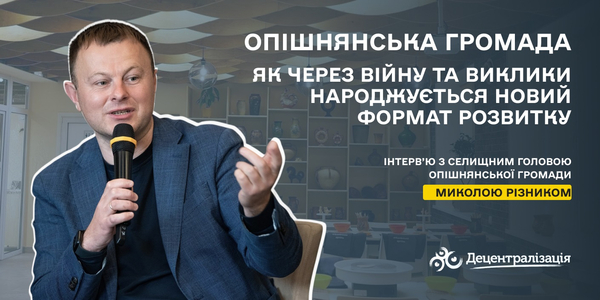
Tags:
war stories report war stories special project
Область:
Полтавська областьГромади:
Опішнянська територіальна громадаSource:
Decentralization portal

21 January 2026
UAH 32 million from community budget – for defence innovations: Experience of Khmelnytskyi
UAH 32 million from community budget – for...
Local self-government during wartime involves more than just maintaining stability at the rear; it also contributes...
21 January 2026
Myrhorod expands cooperation with international partners in healthcare
Myrhorod expands cooperation with international...
The Myrhorod City Council has signed a Memorandum of Cooperation with the International Organisation for Migration...
21 January 2026
Хто відповідатиме за мільярди: про відбудову, страх підпису і роль інженера-консультанта
Хто відповідатиме за мільярди: про відбудову,...
Цей текст – журналістський аналіз проблеми, з якою стикаються українські громади під час реалізації будівельних...
20 January 2026
Lviv and Bergen are now partner cities
Lviv and Bergen are now partner cities
Lviv is expanding its network of international partnerships: an agreement on cooperation has been officially signed...
